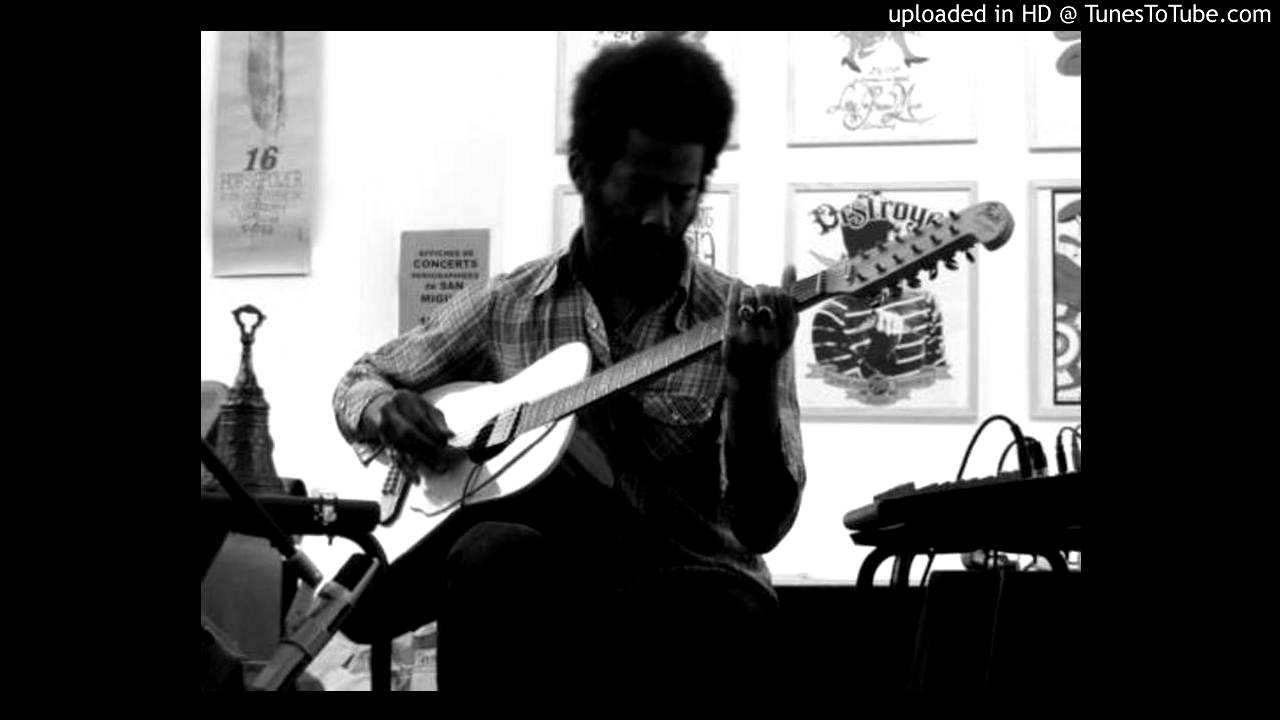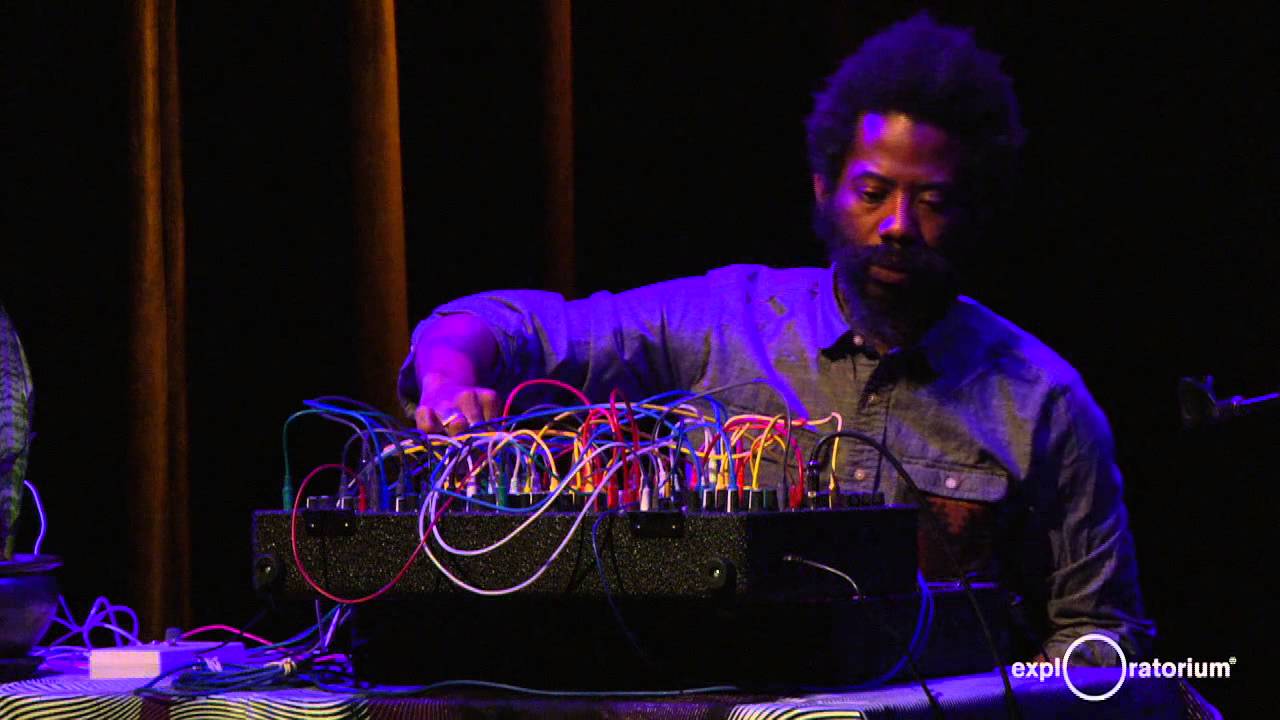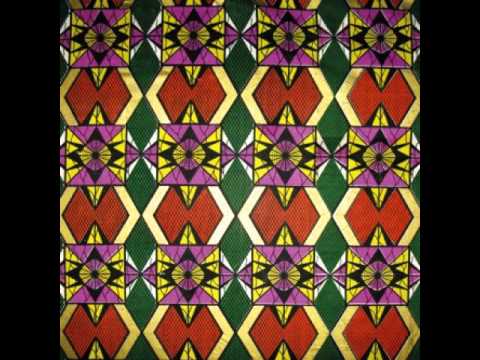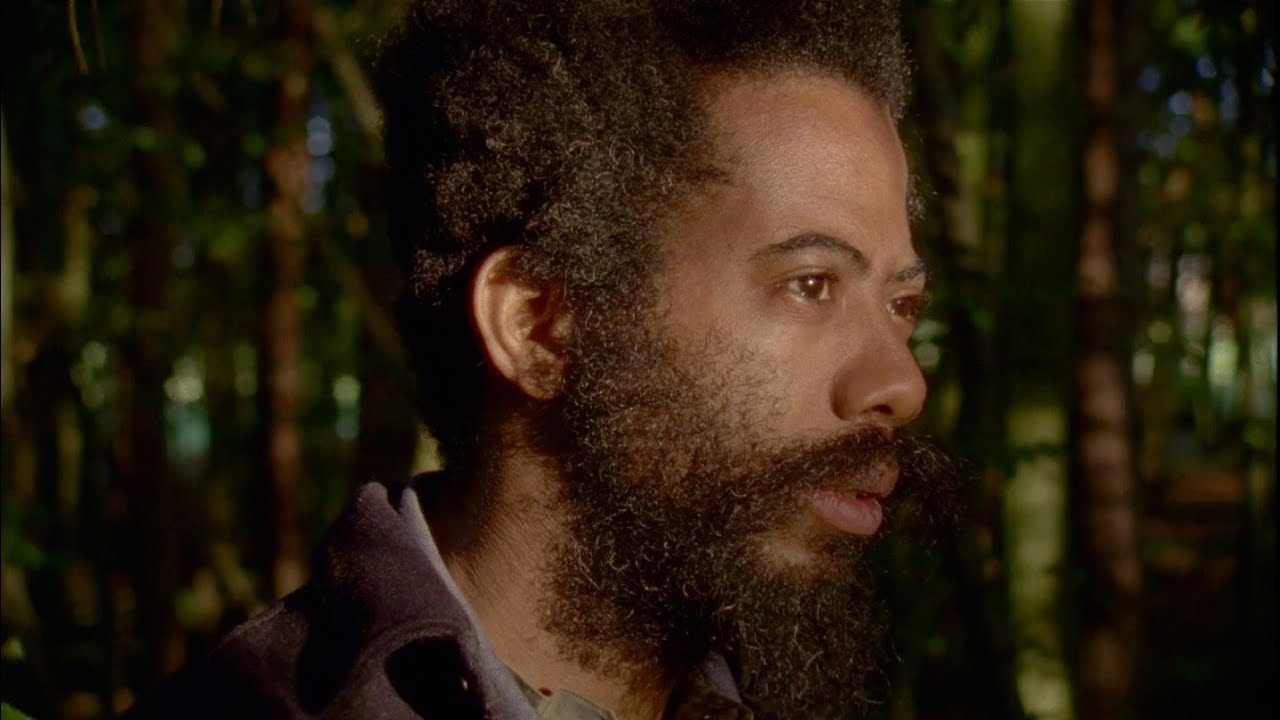Some artists find their voice, and spend their career perfecting it. There are others, however, that can spend an entire lifetime in continual transition. Robert Aiki Aubrey Lowe is firmly of the latter ilk. Under the name Lichens he’s delved deeper and deeper into solo modular synth and vocal improvisations since starting the project in the mid-noughties, while also continuing to maintain a sizeable portfolio of collaborations and guest appearances – including with drone metal gods Om – and has also regularly put out several distinctly different forms of exploratory drone under his own name. To top it off, he’s recently added cinema to his repertoire, scoring American horror flick Last Kind Words in 2012, and starring as the nameless wandering traveller in pseudo-documentary A Spell To Ward Off The Darkness last year. Despite making a career as something of an intense secular mystic, adorned with straggly unkempt facial hair and a thousand yard stare put to hard work throughout A Spell To Ward Off The Darkness and hundreds of Lichens gigs, Lowe is a real pleasure to talk with, and opens our conversation with a warm welcoming smile.
Lowe was a vital part of the thriving Chicago underground for some thirteen years before eventually moving to his current home in Brooklyn, but he in fact grew up five hundred miles west of the windy city, in Kansas City, Missouri. "I grew up in the metropolitan area, which really was a small city," he says. "One thing I think people are not really aware of about Kansas City is that it’s truly a culturally viable place. People have a lot of misconceptions, being that it’s directly in the centre of the country – I guess you don’t really think about a lot of culture coming from the Midwest."
Coming of age in during the 90s, Lowe bore witness to a golden age for post-punk, post-hardcore, and all manner of forward-thinking guitar bands in the region. "There were groups like Germbox, and The Coctails, with Archer Prewitt, who now does The Sea and Cake. There was a really interesting scene." Lowe’s interest led him to get involved in promotion, helping to organise gigs at the short-lived Rhumba Box venue in Kansas City, with sets from the likes of Caspar Brötzmann Massacre, and an early live set from Beck just after the release of ‘Loser’.
When it came to his own music-making, Lowe started out playing bass in local bands – and eventually started singing too. "Around the time I was 17, I was the lead vocalist in a group called Secular Theme, which also featured a young man by the name of Matt Pryor who went on to form a sort of emo-pop group called The Get Up Kids." His experiences playing gigs alongside the likes of Scottish anarcho-punk Ex-associates Dog Faced Hermans and legendary Missourian math-rockers Dazzling Killmen, all the while listening more and more widely to free players like Albert Ayler or Ornette Coleman, broadened Lowe’s sonic palette to encompass both tight structures and total freeform very early on.
Feature continues below image

By the time he joined 90 Day Men, Lowe was already a versatile player and vocalist. "The group was around for about a year before I joined, and so they had sort of established a vocabulary – and I was able to seat myself within that," he recalls. Even amidst the tight structures and complex timing of 90 Day Men’s math rock, Lowe could find and exploit open spaces, injecting a level of spontaneity he’s continued to work further toward. "One thing that I always really strived for within that group was to have the recorded material and the live interpretations of that material live completely separately. As we were performing live shows and touring, the songs that we had would really change up, and we could flow in a way to make them more compelling in a performative setting." It’s still something he strives for. "It maintains a freshness."
After half a year driving to and from the 90 Day Men’s Chicago home, Lowe eventually left Missouri, and made the move to the city. Few American cities have had as singular an impact on underground music in the last twenty years as Chicago. "Its proximity sets it up as this sort of oasis in the middle of the country," he says. "You’d see bands with no glaring influences from either coast… it had long since established its position as its own thing." The city’s relatively self-contained and restlessly creative underground clearly had a long-lasting impact on Lowe. Around the turn of the century 90 Day Men put out several releases of progressive-leaning math rock, including albums on the London-based Southern Records label (who had a Chicago office at the time), and ultimately going on indefinite hiatus after the release of Panda Park in 2004.
Lowe then quickly plunged headfirst into his solo improvisatory project, Lichens, releasing The Psychic Nature Of Being and Omns through Chicago institution Kranky records in 2006 and 2007. On Panda Park, the spectacular last record from 90 Day Men, the seeds of Lowe’s later experiments in Lichens with vocal tones had already been clearly audible. "On Panda Park I really felt the need to push out and create a different space with my particular voice. From that, when 90 Day Men went on an indefinite hiatus, I decided to focus on my voice specifically. Everything else sort of comes after that."
The Lichens project soon led to him taking up almost exclusively playing with vocals and modular synthesisers. "Performing solo, improvising and creating spontaneous music based around my voice, perhaps augmented by or coupled with a few other instruments, I got to the point where I wasn’t able to eke out much more from, say, those stringed instruments. I had established that particular vocabulary within my work, and I was set to move on. So I started working with hardwired synthesizers; a lot of vintage analogue synths."
Focusing in on the voice is as musically freeing as it is sonically limiting. The distinct timbre of Lowe’s voice, and the physical confines imposed with working in such a way, lend his vocal improvisations a curious signature. "More than anything it’s just the nature of my particular voice," he admits. Although choral music and certain vocal traditions provide something of a historical context, and there are indeed a handful of contemporaries now working similarly centred around manipulated vocal improvisations – Julianna Barwick, Katie Gately and Holly Herndon all spring to mind – Lichens’ music comes across as a fundamentally rootless project. "The impetus was to create a situation where the voice was showcased as an instrument," Lowe explains. "I think some people have come around to it now, but at the time I feel like that was something that was really missing within the sort of scene I was in."
As Lichens progressed, Lowe started with a more pliable range of modular synths, and instantly felt a rapport with them. "They’re interchangeable, and have the potential to be ever transforming," he enthuses. After spending fifteen years bound to fret boards, the boundless possibilities opened up by the modular matched the dense intricacies of Lowe’s layered voice. "A synthesiser can get right there in between the notes. The idea of working within a twelve tone system, the Western scale, is not the most exciting to me." American composer Harry Partch had been an early explorer of this kind of approach in the mid-20th century, creating his own 43-note scale within the same frequency range as the western 12-tone octave, even custom-building his own instruments to match. "He was definitely important in my thinking – creating his own system like that," says Lowe. "And who’s to say that it’s right or wrong? It just is what it is."
Modular synths don’t necessarily even require a standard keyboard interface. Lowe’s music, as a result, can bud from anything – an oscillator, a microphone, even from a pot plant (as in one recent performance at San Francisco’s Exploratorium, video below). "The MIDI Sprout is a little piece of hardware created by a collective in Philadelphia called Data Garden," says Lowe. "They’ve made a box that will read bio-data – whether it be from the plants, or the human body – using EEG pads, and convert it into a MIDI signal, which I then put into a MIDI interface to use with my synthesiser."
Clearly enamoured with his machines, Lowe leaps at the chance to give detailed explanations of the workings behind his synthesisers. "Each module has its own specific function, be it an audio source, or a modulation source, or a trigger or sequencing source. With the individual functions of these modules, there are patch points – there are ins and outs – be they audio or control voltage patch points. You then use patch cables, to route the signal, and from that the modules themselves begin a dialogue. I’d compare it how to human brain works: the human brain has synapses and signal paths, and it’s all electricity-based. In that way it’s a machine that mimics the human machine."
The improvising electronic musician isn’t necessarily a new concept, but the flexibility of the instrument opens up organic new regions for Lowe, enabling him to rely less and less on the confines of the equipment, and leave less up to the pre-destiny of technologically determined music. "Every time I patch the synthesiser, in every performance, the patch is slightly different. Understanding of the signal path, and having a set of motifs that I return to, is definitely something I do. Having the thing shut off or blow up in the middle of a performance isn’t something I want to happen! But there is this other factor, where the machine will take on a life of its own and do what it does. I really like that aspect. "
In addition to his extensive solo work, Lowe still plays in several bands, including West Coast icons Om. Bassist/vocalist Al Cisneros had actually played at the Rhumba Box in Kansas City with Sleep, in support of Hawkwind, but Lowe happened to be off that night. The pair’s paths eventually crossed years later in Chicago, in 2005. "He and Emil [Amos] were working on [Om’s] God Is Good record in Chicago while I was still living there. It was their first record for Drag City, and I was working with a band called Singer at the time, and we’d also just completed our first record for Drag City." Lowe eventually wound up contributing tambura and vocals to both God Is Good and its follow-up Advaitic Songs. "I was playing at the time with a group called DRMWPN [‘dreamweapon’], with sort of a rotating cast, with all members of the ensemble playing Indian classical instruments. So I was already playing tambura at that time." His Indian classical interjections in the studio helped to fuel Om’s most recent ascensions to new spiritual heights, and he’s ultimately wound up becoming Om’s formal third member. "They definitely needed a third set of hands to recreate that landscape in a live setting. So that’s how I ended up playing."
As if this range of music wasn’t enough, the world of cinema has been recently blessed with a second man named Robert Lowe. Lowe first appeared on screen very briefly as the ghost of a runaway slave at the start of American indie horror flick Last Kind Words, back in 2012. "Kevin Barker, who is the director of Last Kind Words, he and I had actually played music together before," he explains. "We’d known each other for years and we’d actually done a tour together opening for Joanna Newsom, playing some of Kevin’s songs – he used to play in Joanna Newsom’s group year’s ago. After that trip, he and his wife had written this film and started working on it, and he approached me about not only using some of my old music for the film, but composing some new material too." Last Kind Words memorably makes use of themes from Lichens’ Omns album, and is populated throughout with Americana-soaked guitar instrumentals and drones that would win him a Best Original Score award at the 2012 Brooklyn Film Festival. His appearance on screen, however memorable it’s made by his stark, shamanic appearance, lasts only mere seconds.
Meditatively paced existential pseudo-doc A Spell to Ward off the Darkness could barely differ more, with Lowe taking full lead, and more or less being the sole cast member for some two thirds of the screen time. Lowe’s involvement stemmed from his relationship with one of the movie’s experimental filmmakers. "Ben [Russell] and I had known each other from back in Chicago. He and I had done performances together, and travelled together, and talked a lot about working together in some way, which sort of culminated with this film." It’s a relatively free-flowing triptych, portraying three distinct paradisiacal or perhaps utopic situations. Part one watches Lowe amidst a neo-hippie commune living on an idyllic Estonian island, while the second follows Lowe as he journeys solo into the still twilight of the Finnish countryside. The final part consists of immersive close-up footage from an ecstatic gig in Oslo, with Lowe fronting a sort of hodgepodge sublime black metal supergroup.
The entire film was semi-improvised, or rather naturally occurred on location. "There was nothing written," Lowe explains. "Basically I was following instruction, and they’d created this series of actions, which I would perform. In a way it was all very real, even thought the situations were constructs." Although the film’s central section in the Finnish wilderness lingers long in the memory, the intensely physical closing performance in Oslo provides the starkest imagery. "Russell, Rivers and I talked through lots of specifics, but it morphed and we eventually put together this sublime black metal group." The corpse-painted quartet included Nicholas McMaster (Krallice) on bass, Hunter Hunt-Hendrix (Liturgy) on guitar and Weasal Walter (The Flying Luttenbachers) on drums behind Lowe in a trance-like state of utter bliss as he screams bloody murder. "Ultimately what we created was not really black metal. It was influenced by, and references it, but it’s definitely its own thing altogether."
Cinema of this type is beyond dank realism, and in Herzogian style requires cast and crew to actually make the journey portrayed, and experience the Scandinavian ecstasies they depict. "There’s this sense of discovery that happens throughout the process of making something like a film – or even an album," Lowe reflects. "So for me it had more to do with the process. There were very real and very interesting things that revealed themselves to me along the way, and I couldn’t say that one was greater than or less than the other." The film is set for a UK release in September, and a limited edition double LP of its soundtrack will also emerge in the near future.
Despite having delivered a killer performance onscreen in A Spell To Ward Off The Darkness, Lowe’s cinematic aspirations still remain chiefly married to sound. He recently completed scoring and sound designing a French television production commemorating Alan Turing – titled Alan Turing, Le Code De La Vie – working alongside Parisian Foley artist (and A Spell To Ward Off The Darkness sound designer), Nicolas Becker. "We’ve also worked together at his studio in Paris, and there’s another film coming out soon too", which is purportedly about French poet Pierre Bergounioux. Elsewhere Lowe remains as prolific as ever, and has plenty of newly recorded material from over the last couple of years, which he’ll be "parcelling out to different labels for release" very soon, along with several upcoming dates across Europe, including the UK. He also hints at something a bit bigger on the way: "there’s one specific collaboration that I’ve been working on for a label called RVNG Intl., that’ll see the light of day next year. It’s with someone special… but that’s all I can say.
"I feel like it’s a good time right now for music," enthuses Lowe. "I really enjoy Peder Mannerfelt [of Roll The Dice], and I just found out The Knife are calling it quits. In recent years, and especially with their more theatrical/choreographed performance approach to the live shows, and that last record – it’s brilliant! They seem to have good minds. So I’m liking a bit from Sweden I guess, right now. Holly Herndon is another, plus Zebra Katz, Le1f, Haxan Cloak, The Bug’s Angels & Devils and the Ampax Catalog’s DSR.SLIT cassette from 2011 are all in heavy rotation."
Robert Aiki Aubrey Lowe’s multi-faceted body of work has grown into something quite unexpected – a career. "I’ve been on this particular path for a long time, and even though I make my living as an artist now, it’s still feast or famine; it’s not the most comfortable living one could have," he admits. His work is made and broken on putting himself out there, on display, and from his solo improvisations, to A Spell to Ward Off the Darkness, the search for some kind of honest truth is at its core.
"Art is not precious. Is not a view a lot of people agree with, but once you put it out in the world it no longer belongs to you. Once you put it out in the world, it’ll be re-interpreted, misinterpreted… and it’s just what it is. My work could be misconstrued as having some sort of specifically religious bent, which for me just is not there." Sacred musics like Arvo Pärt, or even American gospel, lose none of their innate potency when heard from a non-religious viewpoint. Indeed, Lowe’s secular solo hymns rank alongside the Estonian composer’s in terms of sheer musical muscle, yet draw their significant power from the earthly rather than the divine. "It’s what I do," Lowe states. "It’s the path that I’ve chosen."
The film A Spell To Ward Off The Darkness is set for a UK release on 12th September
Robert Aiki Aubrey Lowe plays the following European dates in autumn:
OCTOBER
14th – Unsound festival, Krakow
23rd – Insomnia festival, Tromsø
25th – Elevate festival, Graz






